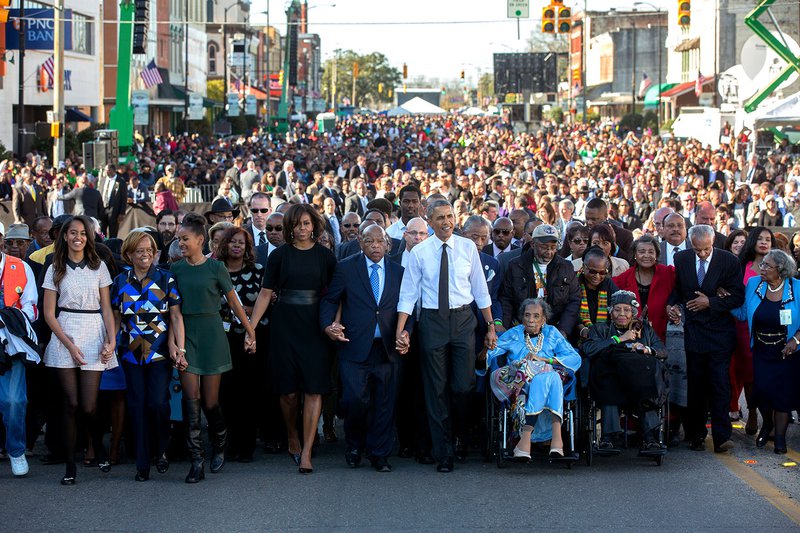The Million Meanings of Blackness
Weekly Article

Obama White House/Pete Souza
Feb. 23, 2017
What’s it like being a black American in 2017?
By some metrics, such as the subtle and overt ways we persist in ordering society by skin tone, it’s like the past is turning into prophecy. After all, black Americans still have some of the worst education outcomes in the country, and a dark alchemy of police brutality and racism continues to decimate black lives at jaw-dropping rates. Yet in crucial ways, blackness today is also being reflected with a depth that has for so long been withheld. We’ve seen it in everything from our first black president and his black family to, well, even our movies.
Being black, in other words, doesn’t play by any rule book. It operates in a million different ways in a million different contexts. Which is why New America has commissioned this very special edition of the New America Weekly. In it, you’ll catch glimpses of black life. Drawing on her experiences in public education and the Obama administration, Tyra Mariani makes the case for why racial representation in government matters. In a similar vein, Alyssa Sims turns a critical eye toward the Beltway to look at moves think tanks are making to correct their diversity problem. Hana Passen crisscrosses past and present as she unpacks Ava DuVernay’s 13th—a film about the barbed legacy of the 13th Amendment—to distill lessons for the resistance. By examining Chance the Rapper through a wide-angle lens, Ernest Ezeugo explains how the musician uses his platform to rap about Christianity and blackness in a way we too often misinterpret. Rachelle Hampton argues that the trickle-down equality that mainstream feminism seems to advocate for isn’t enough—true equality demands that we be urgent and unyielding. And last, Simone McPhail harnesses the power of pictures to offer depictions of black men, usually seen as capable of being only one particular way, as complex and multidimensional—just like you.
Being a black American is, in any year, many things. It’s infuriating. It’s political. It’s exhausting precisely because it’s so infuriating and political. But it’s also inspiring. It’s a joy. And this Black History Month, we’re sharing, here, just a sliver of all those things.